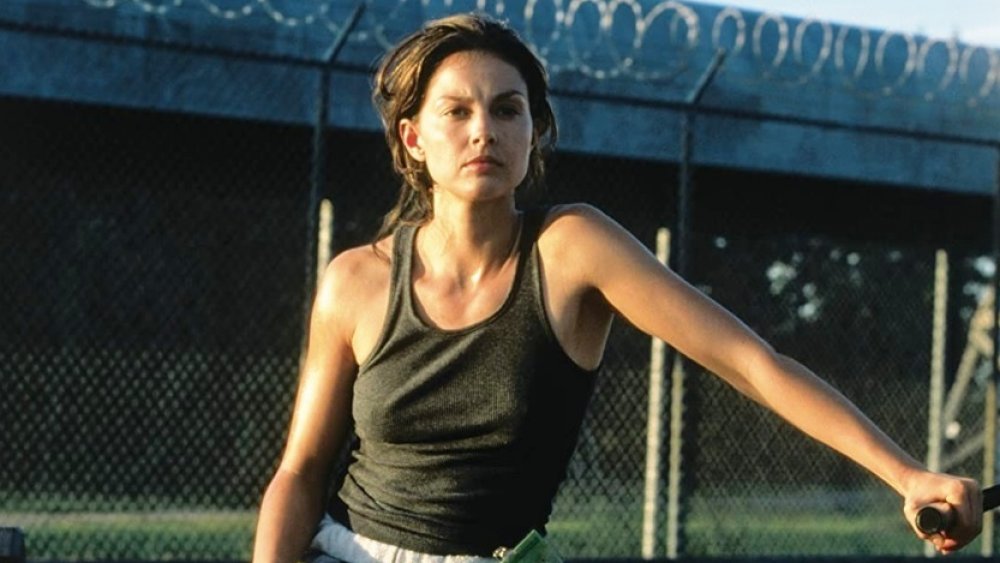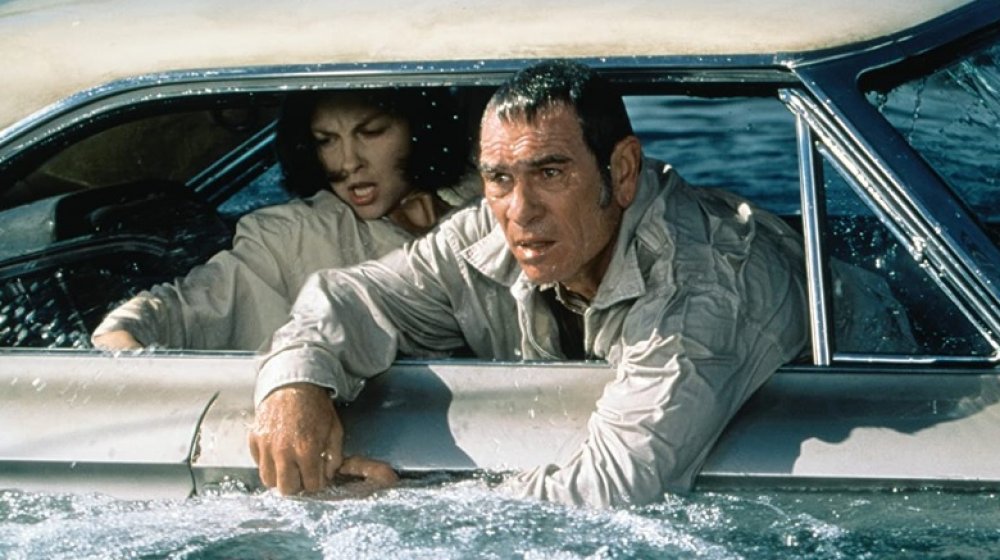How Accurate Is The Movie Double Jeopardy?
When is murder not a crime? When it's a case of Double Jeopardy... at least, according to Hollywood.
The 1999 thriller, which stars Ashley Judd as a woman framed by her husband for his own murder, has been tearing it up on Netflix. Inquiring viewers want to know: just how accurate is the flick's interpretation of the titular legal clause, which states (in a nutshell) that an individual cannot be tried twice for the same crime? Well, charitably, we could describe the movie's level of legal accuracy as "not very accurate." Or, we could not-so-charitably describe it as "not accurate in the least."
For the benefit of those of you who did not literally just finish watching Double Jeopardy, a quick refresher (with spoilers to follow). Judd stars as Libby Parsons, and as the film opens she's departing for a sailing trip with her husband Nick (Bruce Greenwood), leaving her four-year-old son Matty (Benjamin Weir) in the care of her friend Angela (Annabeth Gish). After their first night on the boat, Libby awakens to find Nick missing — with blood everywhere, and a huge knife suddenly having appeared on the boat's deck.
Libby is imprisoned, but comes to suspect that Nick is still alive, having faked his death with Angela's help in order to exclude Libby from his life insurance policy. While in the clink, she learns from a fellow inmate that under the Double Jeopardy clause of the Fifth Amendment to the U.S. Constitution, if she were to be released, she could theoretically hunt Nick down and kill him. As she's already been convicted of his murder, she cannot be convicted of the same crime twice.
Eluding her parole officer, Travis Lehman (Tommy Lee Jones), Libby tracks Nick down to New Orleans, where he has started a new life under an assumed name. In a climactic confrontation (aided by Lehman, who comes around to Libby's team when he realizes her innocence), she indeed shoots and kills Nick, although it is in self-defense.
Double Jeopardy gives us an extremely lax interpretation of the titular clause
What if it hadn't been self-defense? What if Libby really did just confront Nick and shoot him in cold blood — would she have been protected under the Double Jeopardy clause? No, absolutely not. The clause does protect individuals from being tried twice for the same crime — but that means the same crime, not two separate instances of a criminal act. This is key, because every single lawyer you might ever ask this question will tell you that if Libby had just shot Nick, the act would have constituted a different crime, which happened in a different place, under a different legal jurisdiction — and she would totally have been held criminally liable.
Sure, the movie kind of skirts this issue; after Lehman implies to Nick that Libby (who is currently pointing a gun at him) could just go ahead and murder him with impunity because of the Double Jeopardy clause, Nick pulls a gun, wounding Lehman and shooting at Libby, thereby giving his wife an easy defense. But that's neither here nor there — the movie spends the entirety of its run time with Libby (and the audience) convinced that she'll be completely in the clear if she just blows Nick away, and while this certainly makes for a scintillating premise for a movie (one which sports the tagline "Murder isn't always a crime"), it simply doesn't work this way in real life.
As it turns out, the Fifth Amendment contains no "Killing the Jerk Who Faked His Death and Framed You For the Murder is A-Okay" clause. If you can get past that slight inaccuracy, though, Double Jeopardy is a fun flick, with great performances from Judd and Jones, not to mention a great message: don't ever turn to Hollywood thrillers for legal advice.

